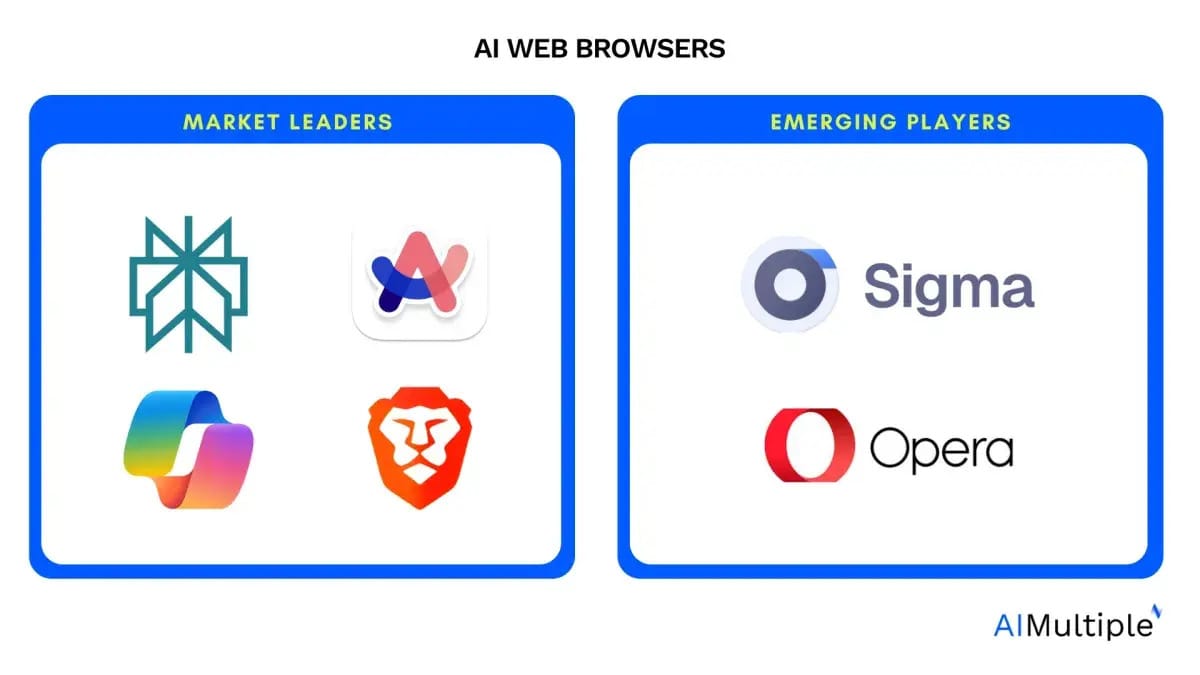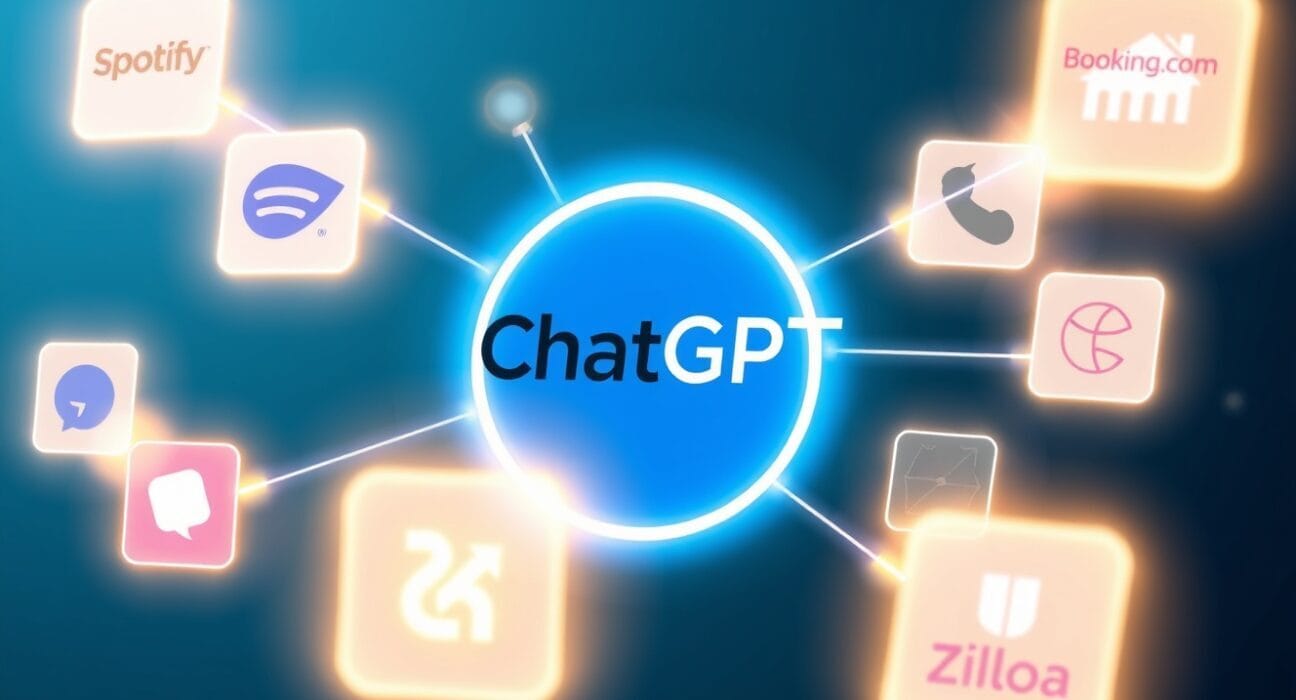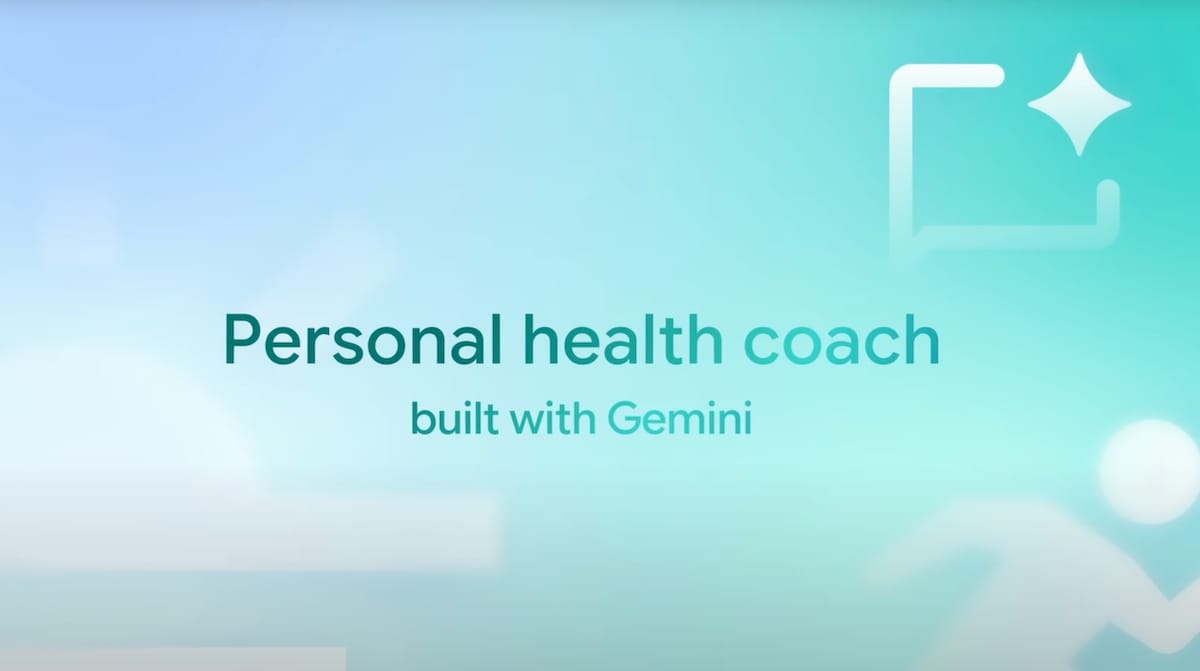- AI Shots
- Posts
- 🧠 Who Are AI Browsers For?
🧠 Who Are AI Browsers For?
🎨 Unlocking the New App Integrations in ChatGPT

Hey AI Explorers,
Here’s what’s in store for you today:
📰 AI NEWS
🧠 Who Are AI Browsers For?
🎨 Unlocking the New App Integrations in ChatGPT
💪 Fitbit Rolls Out Gemini-Powered Health Coach for Premium Users
LATEST DEVELOPMENT
🧠 Who Are AI Browsers For?

Image Source: NewsBytes
AI-powered browsers promise to change how we interact with the web, but who are they actually designed for? On one hand, they target power users and knowledge workers—people who consume lots of content, juggle many tabs, and need tools to summarize, compare and extract insights quickly.
On the other hand, they aim at everyday users who want smarter defaults: ask a question, get an answer, finish the booking without navigating endless menus.
These new browsers offer things like AI-summaries of pages, task-automation agents that can fill forms or book reservations, and context-rich chat interfaces built into the browser itself. But with that convenience comes trade-offs: what’s the browser collecting, remembering, or deciding for you?
In short: AI browsers are for people who want to delegate browsing to smart assistants, not just use a tool to visit websites. The question for the rest of us is whether the gains—from speed, efficiency and automation—outweigh the cost of handing over more control and context.
— Takeaway: If you’re comfortable letting an assistant steer your web experience, AI browsers could be a major boost. If you value manual control and minimal tracking, stick with the ones you know.
🎨 Unlocking the New App Integrations in ChatGPT

Image Source: Cybernews
ChatGPT just leveled up its game — you can now connect real-world apps like Spotify, Canva, Figma and many others directly inside your chat. What used to require jumping between tools is now handled in one place.
How it works:
Start by logging into ChatGPT, then simply type the name of the app you want at the beginning of your prompt. ChatGPT will guide you through the account connection and necessary permissions. Alternatively, head to Settings → Apps & Connectors where you can browse supported services, link accounts, and manage your integrations.
Once connected, ask for what you need: “Spotify, build me a playlist for chill evening mode,” or “Canva, design a 16:9 roadmap slide deck with our brand colors.”
Why it matters:
These integrations blur the line between AI assistant and full-on productivity platform. Whether you’re designing visuals, building playlists, booking travel, or collaborating on documents, ChatGPT is stepping in as your central hub. But with convenience comes trade-offs: linking your app accounts also means sharing your data—listening history, design assets, travel preferences—all flow into the mix, so it’s worth reviewing what you’re granting access to.
Bottom line:
If you’re tired of juggling multiple apps and want a smarter, unified workflow, this update makes ChatGPT significantly more than a chatbot. Just remember: with more power comes the need for more mindful permissions.
💪 Fitbit Rolls Out Gemini-Powered Health Coach for Premium Users

Image Source: Yahoo News
Fitbit is launching a major revamp of its mobile app, introducing a new AI-powered health coach built on Google’s Gemini model. The feature is rolling out first to U.S. Premium subscribers on Android, with iOS access coming soon.
The new experience begins with a short onboarding chat, where users answer questions about their fitness goals, workout preferences, available equipment, and lifestyle habits. From there, the AI coach designs personalized weekly workout plans, adapting to injuries, skipped sessions, or schedule changes in real time.
Sleep also takes center stage in this update. Using improved algorithms, Fitbit can now track rest patterns more accurately and recommend recovery routines—like adding rest days or extra sleep after intensive workouts.
This update marks a major step toward Fitbit’s transformation from a fitness tracker to a holistic AI wellness assistant. The company’s focus is shifting toward smart insights and continuous guidance, making health tracking more proactive and conversational.
For Premium users, the result is a more personal, adaptive, and data-driven experience. But it also brings new questions about privacy, AI reliability, and the growing cost of health subscriptions.
Fitbit’s Gemini-powered coach signals the next evolution in wearable tech — where your fitness tracker becomes a personal AI trainer, ready to guide you through every step of your health journey.
QUICK HITS
📰 Everything else in AI today
🗣️ ElevenLabs drops Conversational AI 2.0
🧠 OpenAI teases “ambient” hardware devices
💰 Anthropic hits $3B annualized revenue
🔐 Meta automating 90% safety reviews
🎥 Veo 3 used in millions of videos
Whenever you're ready, here are ways we can support each other:
Promote your product or service to 100K+ global professionals, AI enthusiasts, entrepreneurs, creators, and founders. [Contact us at [email protected]]
Refer us to your friends and colleagues to help them stay ahead in the latest AI developments. We've helped 30K+ creators, entrepreneurs, founders, executives, and others like you.